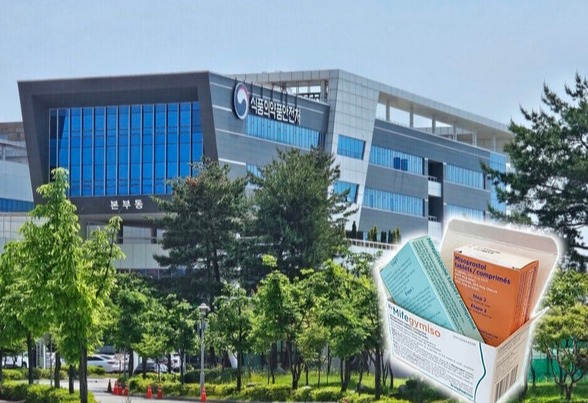Five years have passed since the Constitutional Court ruled that the abortion law was unconstitutional, but abortion by medication remains in a legal gray area.
Nothing shows this better than the failure to introduce the abortion pill Mifegymiso (mifepristone and misoprostol) into Korea due to legislative gaps.
“We need a legal basis to begin the approval process for Mifegymiso tablets. Currently, we cannot proceed with its substantive review due to a lack of such a basis,” an official at the Drug Approval Division of the Ministry of Food and Drug Safety (MFDS) told journalists on Wednesday.

Mifegymiso is a medication used to induce early pregnancy termination. It was designated as an “essential medication” by the World Health Organization (WHO) in 2005 and is currently used in over 90 countries, including the United States and France.
In Korea, Hyundai Pharm has an exclusive supply agreement with the U.K.-based LinePharma and submitted its third application for product approval in December 2024, following submissions in 2021 and 2023. The first two applications were voluntarily withdrawn due to requests for additional information.
Under current law, abortion is only permitted through surgical procedures, and there is no clear legal basis for abortion using medication. Since the Constitutional Court ruled that the abortion law was unconstitutional in 2019, there has been a legislative vacuum, and revisions to the Criminal Code and the Maternal and Child Health Act have not yet been made.
As a result, the MFDS has not officially decided to “reject approval” or “suspend review” for Mifegymiso, but has only maintained its “under review” status.
Whether to allow abortion using drugs and the permissible gestational age must be established by law before core review items, such as efficacy, dosage, and risk management plan (RMP), can be set and evaluated. Hyundai Pharm is aware of this and has agreed that "prior approval is difficult after internal discussions,” the ministry official said on condition of anonymity for policy reasons.
The MFDS also drew a clear line on alternative approaches such as “conditional approval” or “restricted use,” stating that “no internal discussions have been conducted.”
The ministry’s position suggests it cannot make a decision unilaterally, as the matter requires prior social consensus through legal revisions or similar measures.
In response, Hyundai Pharm stated, “There have been no new updates since the approval application in December 2024. We are striving to introduce a safe and effective drug based on the results of three clinical trials conducted in the U.S. and Mexico.”

